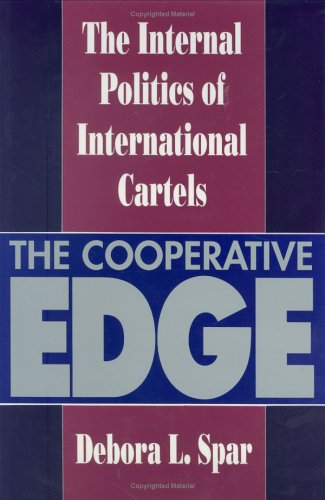Cornell Studies in Political Economy
1 total work
Why does international cooperation work for some enterprises and not for others? And what distinguishes the few that succeed from the majority that fail? In this tough-minded, lucid book, Debora Spar finds answers to these questions when she examines the workings of four commodity cartels. Along the way, she tells some intriguing stories of skulduggery and collusion. The author has interviewed and secured documents from mid-level and senior players in the global markets for diamonds, uranium, gold, and silver. She describes the remarkable success of the international diamond cartel and offers previously unpublished details about the longtime relationship between DeBeers, the South African diamond conglomerate, and the secretive diamond trading agencies of the former Soviet Union. Exploring the cautious collaboration that has long linked the Russian and South African gold producers, she examines what the breakup of the Soviet Union has meant for this relationship. She traces the short life and untidy demise of the Canadian-led international uranium cartel and probes the lack of cooperation among the world's silver producers. From these four cases she builds a picture of cooperation that departs significantly from the conventional portrayal and that has wide ramifications for our understanding of cooperation among states as well as among firms. Writing with a sharp sense of political realities, Spar suggests that certain kinds of states will be better equipped than others to resolve the dilemmas of cooperation. In her concluding chapter she points out the characteristics that mark these "cooperative" states, explores the internal trade-offs that are often entailed in internationalcooperation, and proposes a series of tactics that states can employ to gain and maintain the cooperative edge.
